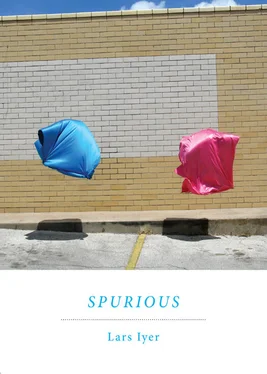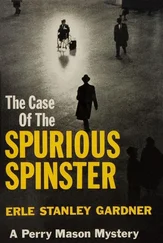It’s all our fault, isn’t it? The whole thing is our problem in some way, as though we were behind everything. Yes, we’re responsible. We’re resigned to it: we’re not just part of the problem, we are the problem.
The road is blocked — our road, everyone’s road. We should just get out of the way. But how can we get out of the way of ourselves? We should throw ourselves off the cliffs, we agree. We should get the water taxi out to Mount Batten, and then head up to the cliffs, and …
But what good would it do, our bodies prone and bloody on the rocks, seagulls pecking out our eyes? How could we apologise then? Because that’s what we ought to do — we should spend our whole lives saying nothing but sorry: sorry, sorry, sorry, and to everyone we meet. Sorry for what we’re doing, and what we’re about to do, sorry for what we’ve done … Who would be there to say that for us if we jumped from the cliffs?
The damp is moving towards the living room, I tell W. The dark armies of damp are moving towards the fresh, dry plaster of the living room. When will it breach the door frame and come through? When will it meet with the damp that’s already coming from the other room?
I’m stranded in space between the armies of damp, I tell him. Stranded, as between two high walls of the sea, parted as Moses parted them. On a strip as wide as this room, the living room, still dry, still an island in a sea of damp. And on two sides of the island, the waves are lapping. Soon they will lap over this island too, and it will have sunk beneath the ocean’s smooth surface. Or is it the two lips of a mouth that have opened, and I am the word it is trying to say? I think it’s speaking through me, a word of damp from within, in my frosty, spore-filled breath and in every line I write.
‘So what are you working on?’, says W., knowing the answer. ‘Nothing, as usual … it’s enough for you just to survive from day to day, isn’t it?’ I’m not like him, W. says, I don’t expect much from life, or from myself. — ‘How do you think you’ll be remembered? What’ll they put on your gravestone?’
‘What’s that name Hollywood directors use when they want to disclaim involvement with a film?’, W. asks me. Alan Smithee, I say. — ‘That’s how you should sign your work’, says W. ‘You’re Alan Smithee! Nothing turned out like it should, but it wasn’t your fault! It was everyone else’s fault! It was the system’s fault, for allowing you to write!’
I like to present myself as a victim, W. observes. I want a reason to whine night and day. Is W. a victim? I ask him. No, not really, he says. He doesn’t have the victim mentality that I’ve perfected. — ‘You love feeling like a victim. You like nothing better than to be persecuted’. But, I tell him, he must admit I have been a little persecuted. — ‘How?’, says W., ‘give me examples’, and when I do, he says, ‘you’re no more persecuted than I am! You’re not in the least persecuted!’
Why do I like to feel persecuted? W. muses. It’s because of my general hysteria. I’m an hysteric, W. notes, ceaselessly whining, but he likes me because of this. There’s something magnificent about my whining, he says. Sometimes it reaches a magnificent purity. — ‘You attain whining itself’, says W., ‘the pure “to whine” ’.
W. is a seer, and I am a whiner, he says. It takes a seer to discover what is eternal in my whining. — ‘It’s magnificent’, he says, ‘go on, do some whining. Whine, fat boy. Tell your story’.
Last year, on the banks of the river Tamar (—‘ah, the mighty Tamar’), W. held forth at length on the question of finding your own voice . He thinks he might have found his quite recently, he says. He’s noticed quite a change in his writing.
And what about me? W. reflects. My voice, he says to me, is like a transcendental whining. It’s amazing, he notes, just how much I whine, and how much I give myself to it. — ‘It absorbs everything you are’, said W. In many ways, he admires it, says W. He thinks it’s why he’s drawn to me.
No one should drink as quickly as I do, says W. Or as much. — ‘You drink too much!’, W exclaims. Of course, W. remembers when I barely drank at all. I wasn’t a drinker then, W. says. I lived with monks at the time, which explains a great deal.
For his part, W. is a steady drinker — a heavy drinker, but a steady one. He paces himself — he learned it from Polish drinkers, who begin slowly and continue slowly, but drink through the whole night. Visiting Poland taught W. a great lesson about drinking.
‘There comes a stage in your life when you have to drink’, W. says. ‘There’s nothing for it. The world is shit, life’s shit, and if you thought for a moment, really thought, you’d kill yourself’. W. went through a period of drinking every day, he says, just as I went through one. He had to, he says, it had all become too much for him. He learned it from me, he says, drinking through your despair.
He was a melancholy drunk, W. says, lying in front of the TV with a bottle of wine. I, on the other hand, was an exhilarated drunk, writing rubbish on the internet all night, when I wasn’t out in the pub. Of course, W. never knows when to stop drinking. He never stops until he passes out, he says. Imagine it: passed out, in front of the TV. That’s why he cut down his drinking, W. says.
I ruined my digestive system, W. remembers, that’s why I stopped drinking so much. I was continually on the verge of soiling myself, it was disgusting, says W. When he came to stay and followed my drinking regime, it was exactly the same: he was on the verge of soiling himself. He had a glimpse of the horror of my life, which was completely different from the horror of his life. — ‘Your digestion!’, he remembers. ‘What did you do to yourself?’ No one should have lived as I have, says W. He’s amazed I survived.
The damp can get no wetter in the kitchen, I tell W. The plaster comes off on my fingernails. It’s brown paste. And the smell, the terrible smell. What’s rotting? What’s behind the kitchen units?
The plaster’s to come off Monday, I tell him, and it will be the final encounter. The brick and I. Exposed brick and a man, and the great drying machines. Because the machines are coming to dry the place out. Night and day, they’ll suck the damp from the air. And the plaster will have been stripped away. And there will be nothing between the damp and me. Nothing but damp brick and I in the stripped away kitchen.
The drying company appointed by the Loss Adjuster say they have no idea of the cause of the damp, I tell W. No one understands the damp. It’s Talmudic. The damp is the enigma at the heart of everything. It draws into it the light of all explanation, all hope. The damp says: I exist , and that is all. I am that I am: so the damp. I will outlast you and outlast everything: so the damp.
Everything begins when you understand that you, and you above all, are Max Brod: this, for W., is the founding principle. That you (whoever you are) are Max Brod, and everyone else (whoever that might be) is Franz Kafka. Which is to say, you will never understand anyone else and are endlessly guilty before them, and that even with the greatest effort of loyalty, you will betray them at every turn.
Do I have a real sense of that? W. wonders. Do I really know I am Max Brod rather than Franz Kafka? He doubts it, he says, which is why I never know the extent of my usurpation. For I am a usurper, says W.; I’ve stolen his place and the place of everyone. Who haven’t I betrayed? What crime haven’t I committed?
Still, says W., his burden is to take on my wrongdoings as though they were his own. It’s all his fault, says W., even though it’s all my fault. This is because he is certain he is Max Brod, while I still think I’m Franz Kafka.
Читать дальше












